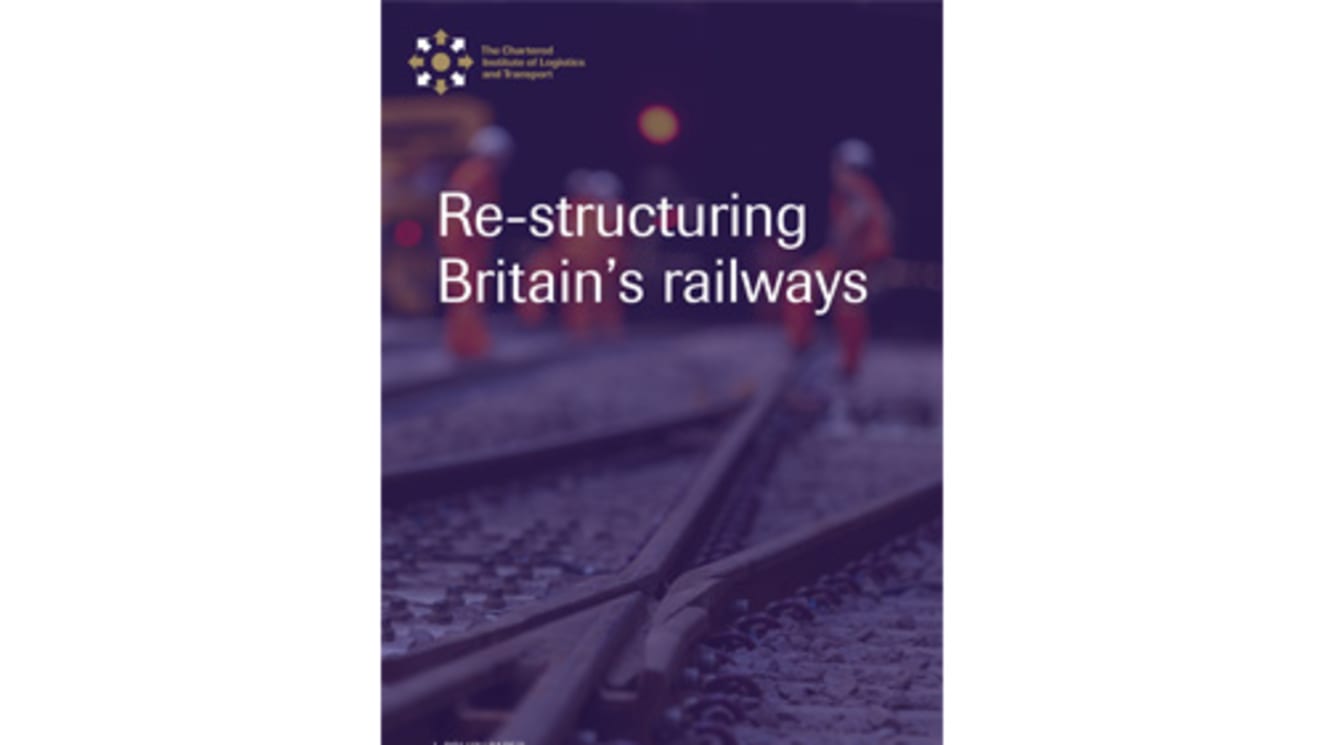The Chartered Institute of Logistics and Transport in the UK (CILT(UK)) has released a new policy paper titled Re-structuring Britain’s railways. Designed to help progress the UK’s rail industry, the paper states in recent years, the rail industry has been slow to change and develop.
Written by the Institute’s rail policy experts, the report reveals the actions that need to be taken immediately to deliver on the recommendations of the Williams-Shapps Plan for Rail (WSPR). The report argues the rail industry needs to urgently regain direction, clarity and respond to what freight and passengers need.

The paper reveals progress towards delivering rail reform has been slow, despite widespread concern about rail’s costs and output and expresses support for the establishment of the Great British Railways (GBR) as a single guiding mind. The paper suggests that there is no need to delay progress while waiting for Parliamentary time and points out the Rail Minister has already stated many reforms can be achieved without new legislation.
“Although WSPR’s recommendations were comprehensive, even after two years, there is very little detail around how they will actually be implemented. Recognising that the GBR Transition Team (GBRTT) has been working hard to address them, there are still some areas where choices need to be made to improve outcomes for passengers and freight. This policy paper is designed to ask the questions which need to be answered in order to provide the necessary detail,” Martin Fleetwood , Chair of CILT's Strategic Rail Policy Group said.
According to CILT, there is a need now for a sense of urgency in the sector that:
empowers industry expertise and leadership to support and deliver the reform programme;
recognises changes following the pandemic and adapting services to reflect current and future user needs;
prepares and implements structural change where the 1990s privatisation arrangements are no longer fit for purpose;
establishes a sustainable financial structure that delivers overall benefit through clear long-term funding and confidence for investing.
“Much change can be driven within existing industry structures – and there is no need to delay until there is a comprehensive package of changes available for a ‘big bang’ change for all of the rail industry, or legislative time to set up GBR on a formal basis. The industry needs to be allowed to look to its users and stakeholders to drive change at pace, rather than focusing on structures and processes that will take time to establish,” Daniel Parker Klein, Director of Policy and Communications at CILT said.
Momentum needs to be created across the railway, not just amongst those designing the future system. We should recognise there is an opportunity, with government support, to respond and deliver to everyone’s interest – especially current and potential passengers and freight users and those who will invest in the systems and structures to support them.

